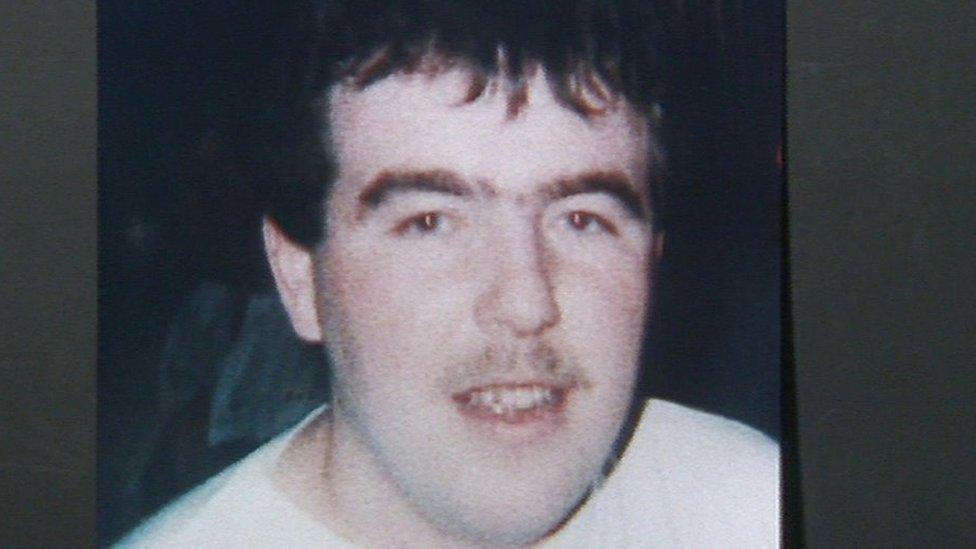Martin McCaughey: European court dismisses case of IRA man killed by SAS
- Published

Martin McCaughey was shot 10 times at a farm in Loughgall, County Armagh
The sister of an IRA man shot dead by the SAS in County Armagh in 1990 has lost a case brought before the European Court of Human Rights in Strasbourg.
Martin McCaughey was shot 10 times at a farm in Loughgall by the Special Air Service (SAS), an elite Army unit, who had the property under surveillance.
An inquest in 2012 found the 23-year-old had been lawfully killed.
Sally Gribben complained the inquest failed to properly investigate the circumstances of the killing.
However, in a unanimous decision on Thursday, the seven-judge court in Strasbourg ruled the case was inadmissible.
It further added that despite "certain weaknesses", the inquest had been an effective investigation.
Mr McCaughey from Galbally in Tyrone was killed alongside fellow IRA man Dessie Grew, 37.
The IRA said the two men were on "active service" when they died.
In its ruling, the court said the inquest had been "thorough", adding that "quite remarkably after 20 years" all but one of the soldiers had given evidence
Two AK47 rifles were found at the scene but no shots were fired by them, prompting claims by some that they could have been arrested.
The shootings were among a number of incidents which gave rise to allegations of a "shoot-to-kill" policy by the security forces.
In bringing her case to Strasbourg, Ms Gribben had complained that under Article Two of the European Convention of Human Rights, there has been a failure to properly investigate the circumstances of the shootings.
In particular, her case focused on inquest proceedings held 10 years ago.
Among the issues she raised was the coroner's failure to secure the presence of one of the soldiers involved.
But in its ruling, the court said the inquest had been "thorough", adding that "quite remarkably after 20 years" all but one of the soldiers had given evidence.
Mrs Gribben's lawyer, Fearghal Shiels, said it was a "disappointing" decision.
He added: "The court has expressed concerns about the refusal of the coroner to disclose potentially relevant information in relation to the involvement of military witnesses in other fatal shooting incidents and the failure to ensure the recall of a key military witness to be examined in relation to his shooting of another man, Francis Bradley in 1986.
"It was our contention that these matters were central issues to be determined by the jury and the inquest had been denied important evidence," he said.